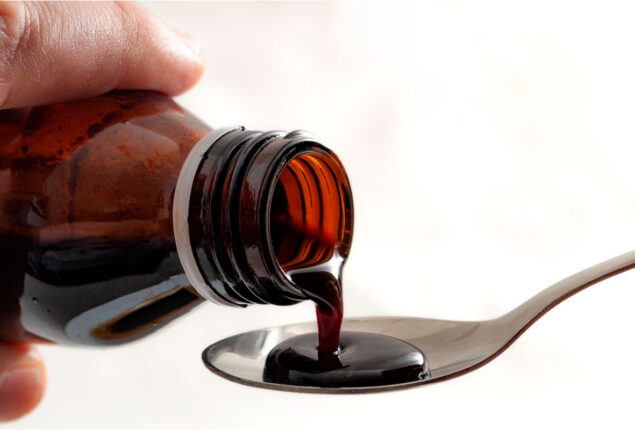SCO Summit 2022: PM Shehbaz leaves for Uzbekistan
PM left here for Uzbekistan on a two-day visit to attend the...

Indian cough medicine to infant fatalities
In Uzbekistan, 18 kids have passed away after ingesting cough medicine made by the Indian pharmaceutical company Marion Biotech.
According to the ministry, early examinations revealed that a batch of the medication contained the hazardous chemical ethylene glycol. It claimed that the Dok-1 Max syrup was administered to the kids without a prescription.
They consumed more than the recommended dose for children as well.
The Gambia made a similar claim a few weeks prior, linking infant deaths to cough syrups supplied by another Indian company. Now Uzbekistan has made the same claim.
The national drug regulator of Uzbekistan and India’s health ministry have been in “frequent contact over the situation” since December 27, according to a statement from the Indian health ministry.
It further stated that the Marion Biotech plant in Noida, Uttar Pradesh, had undergone a health check.
“The samples of the cough syrup have been taken from the manufacturing premises and sent to Regional Drugs Testing Laboratory, Chandigarh for testing,” the statement added.
A Marion Biotech executive was quoted by the news outlet ANI as saying that the company had temporarily stopped producing the syrup. He further stated that the firm would respond appropriately in light of the government’s investigation.
Near Delhi, the capital of India is Noida, where Marion Biotech is headquartered. Although the business’s website is currently offline, it was established in 1999, and according to its LinkedIn page, its products are “familiar names in Central Asian countries, Central and Latin America, South East Asia, and Africa.”
A third of all pharmaceuticals in the world are made in India, primarily as generic medications.
The nation dubbed the “world’s pharmacy,” provides the majority of the medical needs of developing nations and is home to some of the pharmaceutical companies with the greatest rate of growth.
According to a statement from the Uzbek ministry dated December 27, Dok-1 Max syrup and tablets have been supplied there since 2012.
“It was discovered that the deceased youngsters took this drug at home for two to seven days, three to four times per day, 2.5 to five milliliters, which exceeds the normal dose of the drug for children,” the ministry stated.
The timeline of the deaths was not made clear in the announcement. According to a 23 December report from source Monitoring, which was cited by the news website Gazeta.uz, Uzbek authorities were looking into “reports that 15 youngsters died in the central Samarkand region over the past two months after consuming an Indian cough syrup.”
According to a news article published on December 26 by the Podrobno. uz website, between September and December, Dok-1 Max, a cough syrup developed in India, “supposedly” caused acute kidney failure in 21 infants, 15 of whom were under the age of three. Three patients made a full recovery.
Preliminary laboratory examinations have revealed that this series of Dok-1 Max syrup contains ethylene glycol, the government added.
When 66 children in The Gambia died from kidney damage in October, the World Health Organization (WHO) issued a global notice and blamed four cough syrups made in India. Tests on samples of the syrup, according to the report, revealed that they contained unsafe levels of the hazardous chemicals diethylene glycol and ethylene glycol.
The charges have been refuted by the Indian government as well as Maiden Pharmaceuticals.
India stated earlier in December that tests on the four syrups revealed that they met requirements, and a government official told the news that the WHO had been “presumptuous” in attributing the problem on the syrups. But the WHO insisted that it supported the adopted action.
Following weeks of inquiry, a parliamentary committee in The Gambia last week recommended charging Maiden Pharmaceuticals. The committee suggested that the government outlaw the company’s whole line of goods.
Catch all the Health News, India News, International News, Breaking News Event and Latest News Updates on The BOL News
Download The BOL News App to get the Daily News Update & Follow us on Google News.